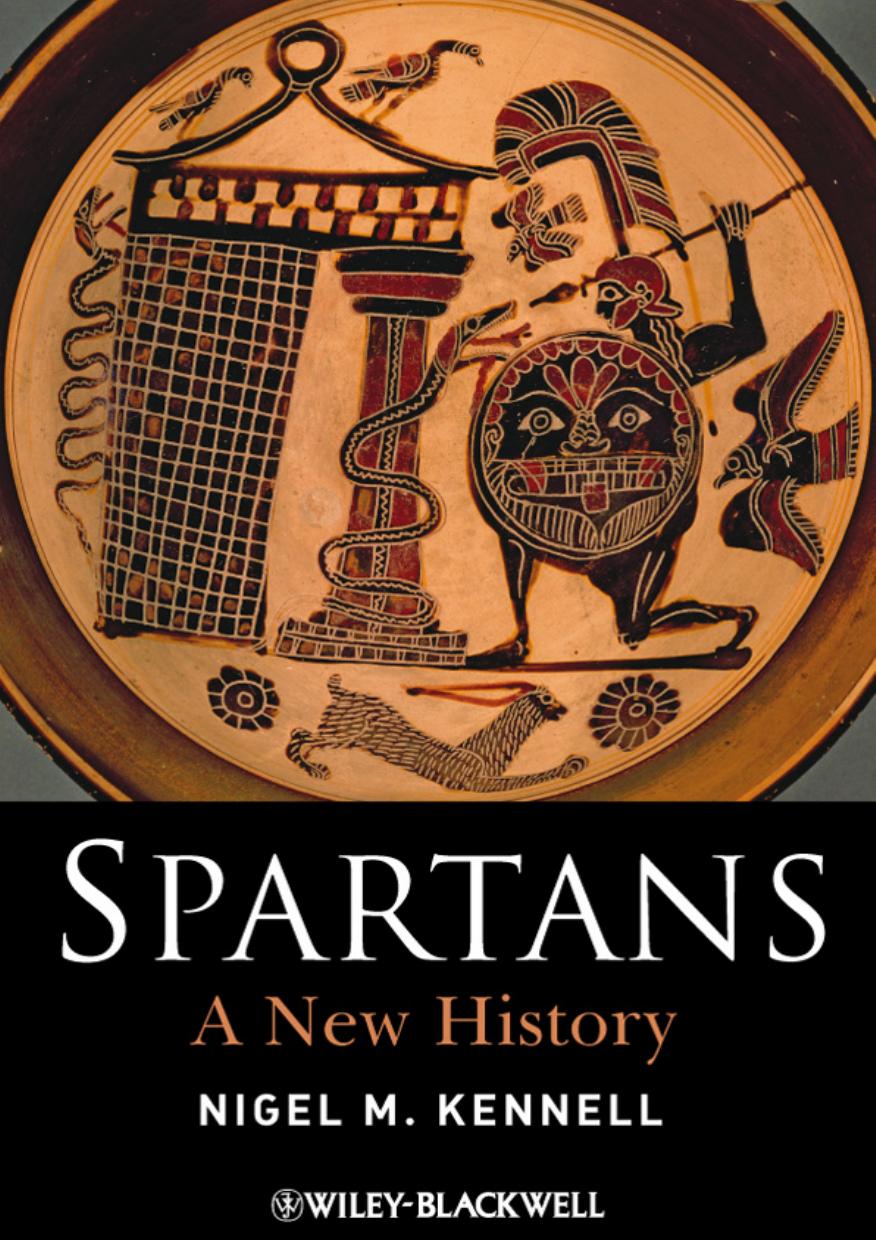Spartans by Kennell Nigel M

Author:Kennell, Nigel M.
Language: eng
Format: epub, pdf
Publisher: Wiley
Published: 2010-09-08T16:00:00+00:00
7
Leotychidas to Lysander
Events in Greece had not stood still during Pausanias’ quixotic career in Asia Minor. Leotychidas, Cleomenes’ replacement for Demaratus and victor against the Persians at the Battle of Mycale in 479, paid for his role in corrupting the Pythia, in Herodotus’ eyes at least, when he was caught red-handed with a Persian sleeve stuffed with silver while leading an expedition against the pro-Persian Thessalians in 476 (Hdt. 6.72). Condemned at Sparta, his house demolished, he went into exile in Tegea and died there by 469, perhaps still formally a king. In 475, a vigorous debate broke out over losing the hegemony of the Greek Coalition along with its concomitant opportunities for enrichment and enhancement of Sparta’s prestige (Diod. Sic. 11.50.2) – a salutary reminder that Spartan public opinion was far from monolithic.
In the later 470s, Spartans had to deal with problems on several fronts. Twice the Tegeans fought the Spartans, once in alliance with Argos, once with the support of almost all the Arcadians (Hdt. 9.35.2). Themistocles may have been at work here, since, after his enemies had succeeded in ostracizing him from Athens, he took up residence in newly democratic Argos and traveled extensively in the Peloponnese, certainly not on sightseeing trips (Thuc. 1.135.3). Spartan victories brought the region back into the fold. But then, probably at the end of the decade, developments at Elis in the northwest Peloponnese took a worrying turn when all the separate communities within its boundaries amalgamated into a single city-state (Diod. Sic. 11.54.1). The process, known as synoecism (sunoikismos), was usually the precursor to converting to a democratic constitution – not the Spartans’ favored form of government.
The earthquake and subsequent revolt in 465 had far-reaching political consequences. Because of their desperate situation, the Spartans were unable to carry out their secret pledge of support for Thasos when that northern Aegean island tried to withdraw from the Delian League in protest over an attempted Athenian seizure of valuable trading and resource assets on the Thracian mainland (Thuc. 1.101.1–3). Thasos was besieged by the Athenians, stripped of its mainland possessions, its walls demolished, and a punitive tribute levied. Even so, reconciliation between Sparta and Athens might have been possible if the Spartans had not later rejected the Athenian contingent sent during the Messenian revolt (Thuc. 1.102). Aggrieved by their abrupt dismissal, the Athenians had no compunction in allying themselves to Argos, once anathema because of its enthusiastic medism in the Persian War. Public opinion in Athens turned against the Spartans, and conciliatory voices were silenced, including that of Cimon, who was subsequently ostracized in 461 (Plut. Cim. 17.3). One outcome of this hardening of attitude was the Athenians’ provocative settling of Messenian refugees from Ithome at the newly acquired city of Naupactus, whose strategic position on the north coast of the Corinthian Gulf controlled the gulf’s entrance (Thuc. 1.103.3). The clash became inevitable and resulted in the on-again, off-again conflict known as the First Peloponnesian War that lasted through the 450s and into the early 440s.
Download
This site does not store any files on its server. We only index and link to content provided by other sites. Please contact the content providers to delete copyright contents if any and email us, we'll remove relevant links or contents immediately.
The Daily Stoic by Holiday Ryan & Hanselman Stephen(3304)
The Fate of Rome: Climate, Disease, and the End of an Empire (The Princeton History of the Ancient World) by Kyle Harper(3056)
People of the Earth: An Introduction to World Prehistory by Dr. Brian Fagan & Nadia Durrani(2733)
Ancient Worlds by Michael Scott(2682)
Babylon's Ark by Lawrence Anthony(2673)
The Daily Stoic by Ryan Holiday & Stephen Hanselman(2572)
Foreign Devils on the Silk Road: The Search for the Lost Treasures of Central Asia by Peter Hopkirk(2463)
India's Ancient Past by R.S. Sharma(2451)
MOSES THE EGYPTIAN by Jan Assmann(2412)
The Complete Dead Sea Scrolls in English (7th Edition) (Penguin Classics) by Geza Vermes(2277)
The Earth Chronicles Handbook by Zecharia Sitchin(2227)
Lost Technologies of Ancient Egypt by Christopher Dunn(2223)
24 Hours in Ancient Rome by Philip Matyszak(2078)
Alexander the Great by Philip Freeman(2064)
Aztec by Gary Jennings(2023)
The Nine Waves of Creation by Carl Johan Calleman(1915)
Curse Tablets and Binding Spells from the Ancient World by Gager John G.;(1860)
Before Atlantis by Frank Joseph(1849)
Earthmare: The Lost Book of Wars by Cergat(1824)
